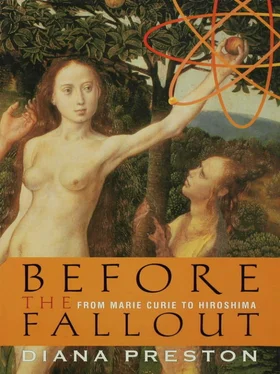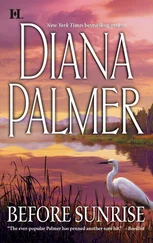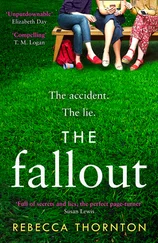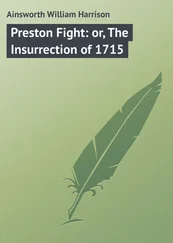After Bohr’s return to the United States, Frankfurter arranged in August 1944 for the Dane to meet Roosevelt face-to-face. Bohr found the president seemingly more receptive than the British prime minister. However, as events proved, he had not convinced Roosevelt either. With the war in Europe entering a decisive phase after the successful invasion of Normandy, and with the Russians advancing briskly from the East, Roosevelt had no desire to share America’s hard-won and expensive secrets with Stalin. In September 1944 he and Churchill agreed to an aide-memoire stating that “the suggestion that the world should be informed regarding Tube Alloys with a view to an international agreement regarding its control and use, is not accepted.” They also agreed that “enquiries should be made regarding the activities of Professor Bohr and steps taken to ensure that he is responsible for no leakage of information, particularly to the Russians.”
Before Bohr was allowed to return to Los Alamos, Groves and Chadwick were instructed to interview him in Washington. Churchill had been particularly incensed by reports that Bohr had been in touch with a Russian professor. Bohr explained that the professor was Ernest Rutherford’s former protege, Peter Kapitza. Learning of Bohr’s flight from Copenhagen, Kapitza had invited him to work in Moscow. Bohr satisfied Chadwick and Groves that he had behaved impeccably—reporting the contact to British intelligence and politely declining the offer. “Mr. Baker” was free to go back to Los Alamos, where he joined in the work on implosion.
While Bohr continued to fight his ideological battle from within, Joseph Rotblat chose another path—becoming the only key scientist to quit the Manhattan Project during wartime for reasons of conscience. He had only been waiting until he could be “absolutely sure” that the Germans had no bomb. Sufficient proof came at the end of 1944 when Chadwick, who had by then moved to Washington, which was more convenient for him as head of scientific liaison for the British team, visited Los Alamos. Chadwick had access to high-level intelligence reports and confided to Rotblat that there was no evidence of a German atomic bomb. On the strength of this, Rotblat resigned forthwith from the Manhattan Project. As Rotblat remembered, Chadwick “didn’t like it,” knowing it would cause rupture with the Americans, but he forwarded Rotblat’s request to the army authorities. Their response was to present Chadwick with a hefty dossier purportedly proving Rotblat to be a Russian spy. The core of the evidence was that he had told a young woman in Santa Fe that he intended to go to England, join the RAF, and then parachute into Russia or Soviet-occupied Poland to tell the Russians what was happening on “the hill.” Rotblat recalled that “within this load of rubbish was a grain of truth.” He had indeed talked to someone in Santa Fe, but only with Chadwick’s knowledge and approval, and the conversation had not concerned Los Alamos.
Army intelligence backed down, conceding that the dossier on Rotblat was worthless. However, Chadwick wisely advised Rotblat that he should cite, as his formal reason for wishing to leave Los Alamos, his anxiety about the wife he had been forced to leave in Poland at the start of the war. Groves agreed that Rotblat should leave immediately. Shortly before Christmas 1944 Rotblat traveled by train to the East Coast to stay for a few days with the Chadwicks in Washington. He then caught a train to New York from Union Station, and Chadwick helped him carry on board a large wooden box filled with research notes and personal papers. Curiously, by the time the train arrived in New York Rotblat’s box had vanished, and he sailed to England on Christmas Eve without it. Despite many inquiries, the papers, no doubt spirited away by U.S. army intelligence, have never been found. Their disappearance symbolized an almost paranoiac and indiscriminate approach to security as the bomb project approached its final months. Even Chadwick was not immune. When, in January 1945, he wished to visit the British program in Canada, he was told there were strong objections on grounds of security, which, he decided, “it would be most impolitic to ignore.”
• • •
The Anglo-Canadian project was, in fact, giving Groves particular security problems. With the Allied invasion of Europe and the liberation of France in 1944, the refugee French scientists involved as part of the British team wished either to visit their homeland or, indeed, to return for good. Groves, who had done everything he could to exclude them from the Manhattan Project, was appalled at the thought of them taking even their limited knowledge home to France. Groves suspected Joliot-Curie was a communist—as indeed he had become—and would pass whatever he learned from his compatriots straight to Moscow.
James Chadwick struggled to cool both French and American tempers. He persuaded Bertrand Goldschmidt to be patient and remain in Canada a while longer. However, Hans von Halban, the leader of the French team, insisted on being allowed to return to Europe, and the British agreed. When they learned that he was in London, the Americans demanded assurances that he would not be permitted to travel on to France. They were outraged when, a few days later, he flew to Paris, where he was soon briefing Joliot-Curie. Groves blamed British duplicity, erroneously believing the British were trying to ensure a greater nuclear role for France in the postwar world in exchange for rights to certain French nuclear patents. The affair soured Anglo-American relations. As a British diplomat wrote with tongue-in-cheek reference to Gallic culinary habits, “The salad is heaped in a bowl permanently smeared with the garlic of suspicion.” When von Halban returned from France to New York, an embarrassed Chadwick asked Goldschmidt to visit von Halban “to learn as much as possible about what he had said to Joliot-Curie” and then report to Chadwick in Washington. When Goldschmidt, who was perfectly happy to oblige, duly arrived in Washington to report, Chadwick apologetically and naively admitted that he already had “a transcript of everything.” The meeting between Goldschmidt and von Halban had been bugged.
However, unknown to either Groves or Chadwick, the French team in Canada had already succeeded in passing information directly to General Charles de Gaulle. Having learned that the general was to visit the Free French delegation in Ottawa in July 1944, Goldschmidt and his colleagues Pierre Auger and Jules Gueron had told the head of the delegation that “there is something so secret we can’t tell you. We must tell de Gaulle direct. We need fifteen minutes.” The man had agreed to set up a meeting but insisted that only one of them could meet the general and that he could have only three minutes. The trio decided that Gueron, who had already met de Gaulle, should be the messenger and rehearsed the words again and again. The gist, as Goldschmidt recalled, was that “there’s going to be a new weapon. It will be ready in a year. It will be used first on Japan. If Germany is still in the war, they’ll be told the second one is for them. It will revolutionize warfare. You must start work in France as soon as possible with Joliot-Curie.”
The brief encounter took place by design in the privacy of the men’s room in the French delegation’s villa. Goldschmidt worried that, under the circumstances, the general might not have grasped the full import of Gueron’s whispered words. However, later that day, when Goldschmidt was formally introduced to de Gaulle, the general said meaningfully to him, “Thank you, Professor. I understood very well.”
Meanwhile, Los Alamos’s real and most dangerous spy, Klaus Fuchs, was pursuing his activities undetected. The Russians had, with wry humor, nicknamed the Manhattan Project “Enormous” and devised code names for some of the chief associated cities: Washington, D.C, was “Carthage,” New York City was “Tyre,” and San Francisco was “Babylon.” Their name for Fuchs was “Rest.” The bearded Igor Kurchatov, in charge of the revived Soviet fission program, wanted information that would fill in the gaps in Soviet knowledge and was driving Fuchs’s agenda. Kurchatov wanted to know about gaseous diffusion as a means of separating out U-235. However, he was especially excited about information, gained through espionage, suggesting that plutonium was an alternative bomb fuel to uranium. Such prospects were, he wrote, “unusually captivating.”
Читать дальше












